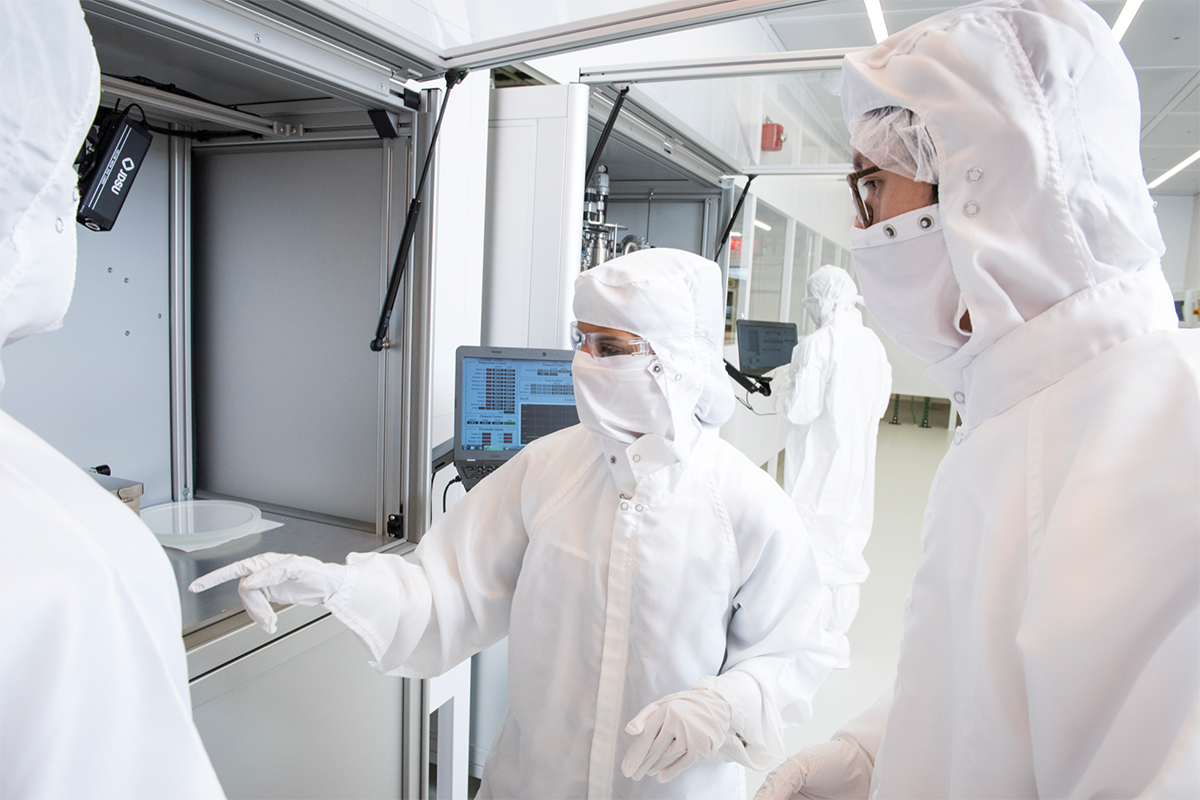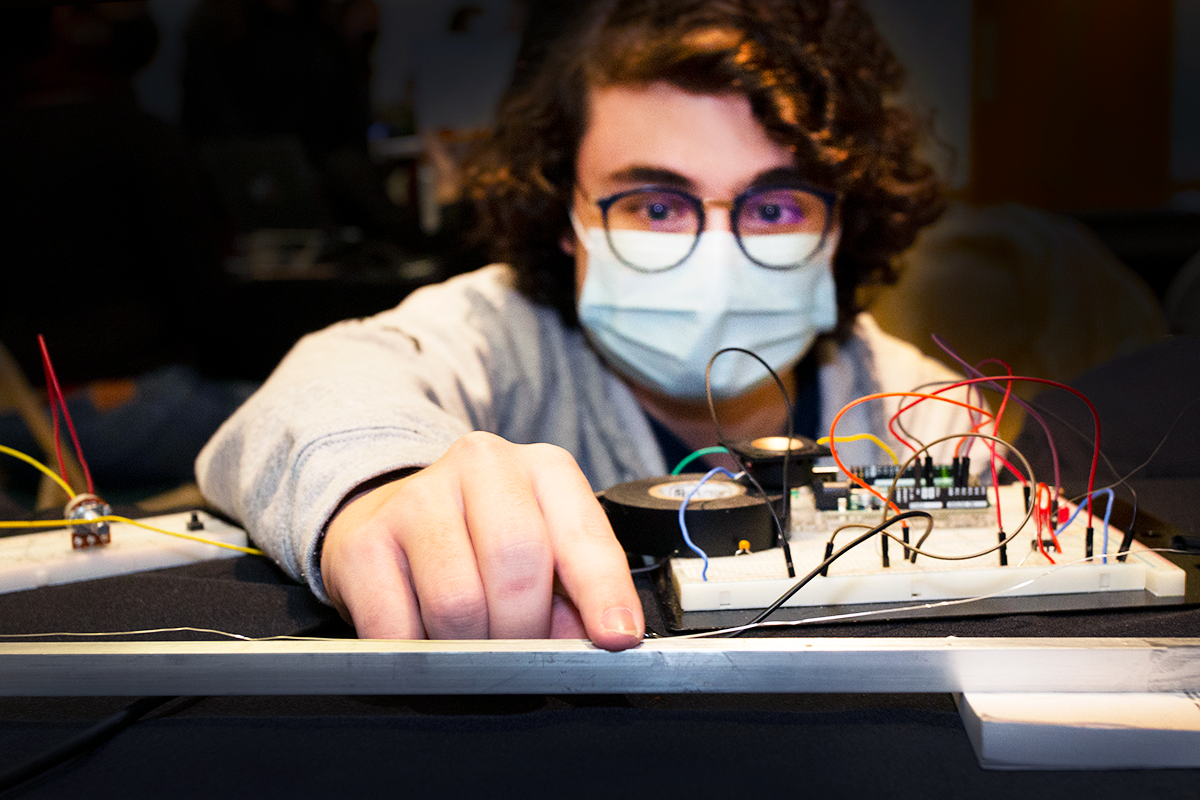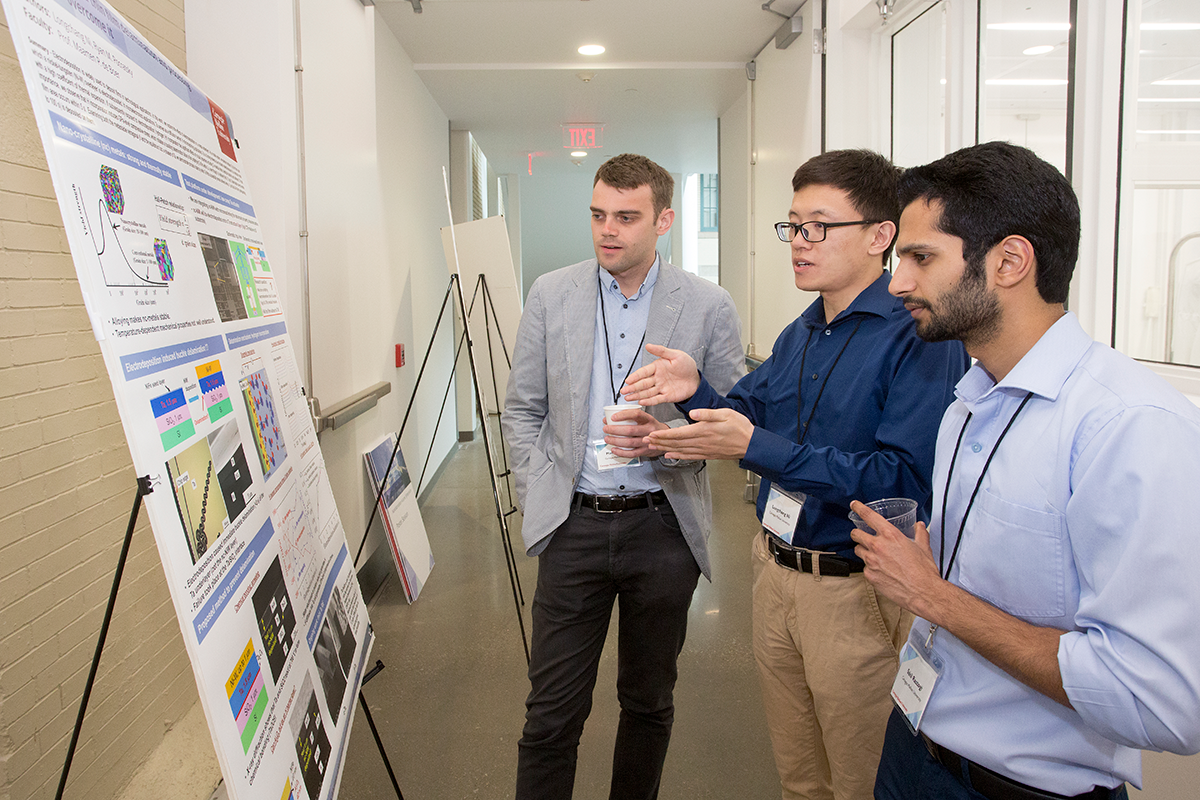
Carnegie Mellon’s Department of Electrical and Computer Engineering (ECE) stands at the forefront of today’s rapidly evolving technology landscape. It equips students to emerge as leaders in the field by honing their engineering skills, fostering their creativity, and providing them with practical insights essential for innovating impactful solutions. The department actively contributes to advancing and sharing knowledge in diverse areas such as energy, healthcare, mobile systems, smart infrastructure, nanotechnology, storage systems, cyber-physical systems, data and network science, and more.
The ECE department offers a wide range of comprehensive graduate programs, including a doctor of philosophy and several master of science programs. The department’s reach spans well beyond Pittsburgh, with offerings in Africa, Portugal, Thailand, Silicon Valley, and Washington, D.C.


Healthcare and quality of life
Intelligent physical systems
Data and network science
The Department of Electrical and Computer Engineering is home to several world-class research facilities, including the Advanced Chip Test Laboratory, the Computer Architecture Lab, the Data Center Observatory, the Microelectromechanical Systems Lab, and the Claire and John Bertucci Nanotechnology Laboratory.
ECE faculty and students contribute to several research centers across the university, including the CONIX Center, CyLab Security and Privacy Institute, CyLab Biometrics Center, Data Storage Systems Center, General Motors-Carnegie Mellon Connected and Autonomous Driving Collaborative Research Lab, and Parallel Data Lab.

ECE graduate students join a global community of scholars and researchers, fostering diversity and collaboration at all levels. Students are encouraged to enhance their professional and technical skills through active participation in Carnegie Mellon’s student organizations.
Six students and alumni from the College of Engineering will research and study abroad on Fulbright program scholarships.
Introduction to Amateur Radio course teaches history, culture, and science of radio technology.
Amateur radio for aspiring professionals
Engineering undergraduate students had a wonderful showing at Meeting of the Minds, displaying posters, giving presentations, and demonstrating projects they have worked on this past academic year.
Three College of Engineering faculty members have been elevated to the rank of University Professor, the highest distinction a faculty member can receive at Carnegie Mellon.
The relaunched Center for Faculty Success will provide professional development, training, and leadership opportunities that empower faculty to succeed throughout their academic careers.
Katherine Parry, a junior in electrical and computer engineering, has received the 2024 Barry Goldwater Scholarship to support her pursuit of a research career.
Six members from the College of Engineering were recognized at CMU’s annual Celebration of Education Awards.
Carnegie Mellon University has awarded professorships to five exceptional faculty members in the College of Engineering.
Engineering faculty awarded professorships
The American Institute for Medical and Biological Engineering (AIMBE) has announced the induction of Pulkit Grover, professor of electrical and computer engineering, to its College of Fellows.
Researchers from Carnegie Mellon University and University of Pittsburgh examine what happens in the brain when it’s presented with learning a new task, but also asked to recall a familiar one.
Faculty from Carnegie Mellon University will collaborate with West Virginia University and University of Pittsburgh on a National Science Foundation Regional Innovation Engines program.
The National Science Foundation (NSF) has awarded Giulia Fanti, Guannan Qu, and Akshitha Sriraman, all assistant professors of electrical and computer engineering, the NSF Faculty Early Career Development (CAREER) Award.
Xu Zhang received an NSF career grant for his work on device fabrication and system-level applications of atomically thin 2D materials.
Zhang receives NSF CAREER Award
PennDOT Secretary Michael Carroll visited CMU facilities at Mill 19 to meet transportation researchers and learn about collaboration opportunities.
A new National Science Foundation Industry-University Cooperative Research Center at CMU will create an ecosystem that advances quantum computing and information technologies.
Researchers from Carnegie Mellon University, the University of Pittsburgh, and the University of Cincinnati have combined their expertise in engineering and medicine to create a noninvasive method for detecting worsening brain injuries before they happen. This advancement could reshape neurocritical care.
College of Engineering dean, professor, and alumnus inducted in the National Academy of Engineering.
Zeynep Ozkaya’s work in Jana Kainerstorfer’s biophotonicslab has helped her to better understand the signal processing principles she is learning in her electrical engineering courses.
Carnegie Mellon University College of Engineering 5000 Forbes Avenue“Do your duty and a little more and the future will take care of itself.” Andrew Carnegie
“As engineers, we were going to be in a position to change the world — not just study it.” Henry Petroski
“Imagination is more important than knowledge. Knowledge is limited. Imagination encircles the world.” Albert Einstein
“Enlightenments, like accidents, happen only to prepared minds.” Herbert A. Simon
“An investment in knowledge pays the best interest.” Ben Franklin
“There is very little success where there is little laughter.” Andrew Carnegie
“I think great artists and great engineers are similar, in that they both have a desire to express themselves. ” Steve Jobs
“We are what we repeatedly do. Excellence, then, is not an act, but a habit. ” Will Durant
“I hear and I forget. I see and I remember. I do and I understand” Chinese Proverb
“Education is the most powerful weapon we can use to change the world.” Nelson Mandela
“Design is not just what it looks like and feels like. Design is how it works.” Steve Jobs
“There's nothing I believe in more strongly than getting young people interested in science and engineering, for a better tomorrow, for all humankind.” Bill Nye
“At the heart of science is an essential balance between two seemingly contradictory attitudes—an openness to new ideas, no matter how bizarre or counterintuitive they may be, and the most ruthless skeptical scrutiny of all ideas, old and new.” Carl Sagan
“Creativity. involves the power to originate, to break away from the existing ways of looking at things, to move freely in the realm of imagination, to create and recreate worlds fully in one's mind—while supervising all this with a critical inner eye.” Oliver Sacks
“I just believe that the way that young people's minds develop is fascinating. If you are doing something for a grade or salary or a reward, it doesn't have as much meaning as creating something for yourself and your own life.” Steve Wozniak